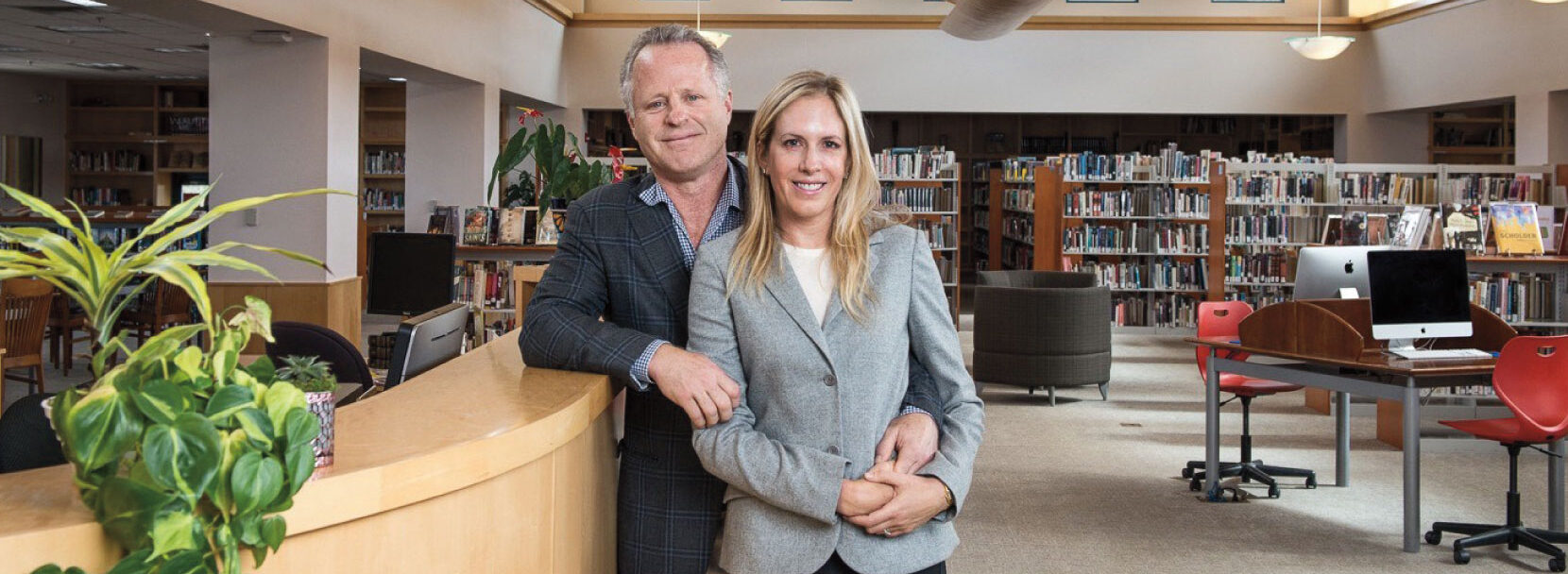
Davis family propels Alzheimer’s research with $25 million gift
“My family and I want to do everything possible to put an end to the devastation of this disease. Drs. Selkoe and Sperling have the most impressive and promising record of excellence, diligence, and research in this space.” —ANDREW DAVIS
“I see Alzheimer’s disease as one of the greatest unresolved mysteries of our time,” says philanthropist and investor Andrew Davis. “Nearly 6 million Americans are living with Alzheimer’s today, and experts predict that number will triple in 30 years.”
Though he and his wife, Kate, have not been directly impacted by Alzheimer’s disease, their concern for others’ suffering stirred them to support medical research aimed at defeating the disease. This past summer, they made an extraordinary $25 million commitment through the Shelby Cullom Davis Charitable Fund to establish The Davis Alzheimer Prevention Program at Brigham and Women’s Hospital.
The couple’s gift builds on their previous philanthropy aiding the work of Brigham neurologists Dennis J. Selkoe, MD, and Reisa A. Sperling, MD, MMSc, who are leading research to predict and ultimately prevent Alzheimer’s disease.
“My family and I want to do everything possible to put an end to the devastation of this disease,” says Davis. “Drs. Selkoe and Sperling have the most impressive and promising record of excellence, diligence, and research in this space.”
Selkoe and Sperling have a combined 60 years of experience studying and deciphering the mechanisms of Alzheimer’s disease. Selkoe, co-director of the Brigham’s Ann Romney Center for Neurologic Diseases, pioneered the amyloid hypothesis, which explains how buildup of amyloid protein in the brain triggers Alzheimer’s and its debilitating symptoms.
Sperling, director of the Brigham’s Center for Alzheimer Research and Treatment, heads large-scale clinical trials such as the A4 study, the world’s first prevention trial focused on preventing memory loss before it starts in cognitively normal older individuals at risk for the disease.
“We’re extraordinarily grateful to the Davis family for their generosity, trust, and partnership as we intensify our efforts to treat and prevent this disease,” says Sperling.
With the Davises’ monumental support, Selkoe and Sperling are undertaking substantial endeavors, such as further developing a blood test that appears to predict Alzheimer’s and building a new prevention trial platform to assess promising therapies more rapidly.
“Through all this work, we envision Alzheimer’s being detected at a much earlier and more treatable stage than is possible now,” says Selkoe. “We anticipate a future when Alzheimer’s will no longer be the terrible death sentence it is today and will be preventable for our children’s and grandchildren’s generation, and hopefully before.”